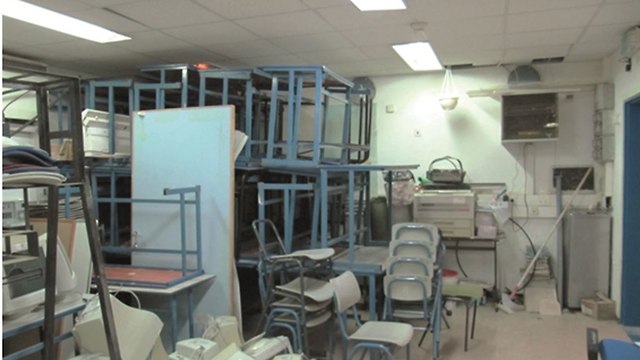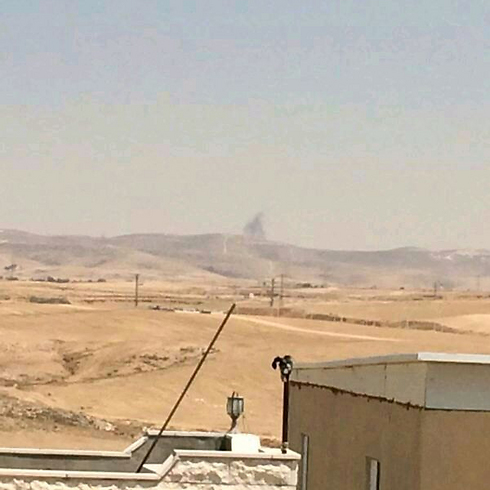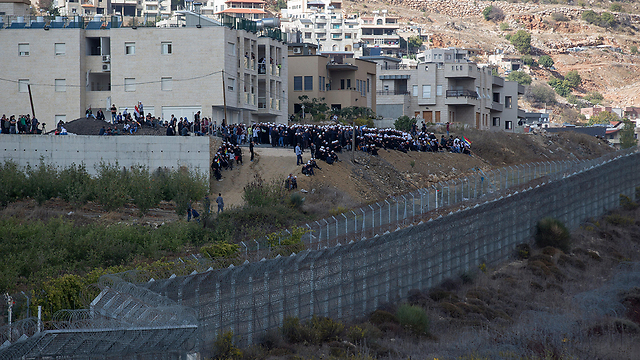

Report: 2 million Israelis have no access to proper bomb shelters
State Comptroller's Report on local government finds major gaps in the availability of bomb shelters in non-Jewish sectors; only 11 out of 71 non-Jewish local authorities have public bomb shelters; 127,000 students have no access to protected spaces in schools; 'urgent solution' required.
The situation in the non-Jewish sector is especially bleak. More than 46% of the sector’s residents, which constitute more than 550,000 people, have no adequate protection.
The State Comptroller, retired judge Yosef Shapira said the problem requires an urgent solution.
During Operation Protective Edge in 2014, 32-year-old Odeh Al Wadij was killed at his home in an unrecognized Bedouin settlement near Dimona in a rocket attack. His youngest daughter was seriously injured. Two young Bedouin girls were also injured during the operation when a missile exploded in the backyard of their house near The Lakiya Negev region.
In September 2014, a month after the operation had ended, the government established a committee in order to formulate a plan for removing barriers and shortening procedures when it comes to protection of residential homes.
The report found that despite the fact that the committee concluded its work in 2016, the committee’s proposal was not advanced due to a dispute between different ministries regarding the required budget needed to implement the plan.
The comptroller added that The Ministry of Finance did not prepare a comprehensive and alternative plan for the committee aimed to close existing gaps in the protection of the non-Jewish sector.
Not every house has a bomb shelter, therefore public bomb shelters have been installed around the residential areas.
However, the report finds that in many non-Jewish residential areas there are no bomb shelters at all. Only 11 out of 71 non-Jewish local authorities, inspected by the State Comptroller, were equipped with public shelters.
The comptroller discovered that in the Regional Council of Majdal Shams north of the Golan Heights—an area which have been struck in the past by stray fire from Syria's internal conflict—there had been only one bomb shelter which was taken over by an voluntary association that took down the two emergency exits inside it without any authorization. Therefore, the shelter cannot be used as an adequate public bomb shelter but only as a protected space in case of emergency.
The State Comptroller also found that most of the non-Jewish local authorities with bomb shelters lack the necessary means for residents to stay there for a prolonged period of time.
In addition, the Home Front Command did not fully utilize its authority in order to demand the non-Jewish local authorities to regularly upgrade the available shelters. From 2015 to 2017, inspections had only been conducted in three out of 11 local authorities equipped with shelters.
According to the report, around 127,000 schools students in non-Jewish areas (38 percent of all school students), have no access to protected spaces in schools.
The Ministry of Education did not conduct regular inspections on the existing protective and sheltering facilities at schools in local authorities.
Bomb shelters in private housing in 70 out of 71 non-Jewish local authorities that had been inspected, did not adhere to the 1975 law on maintaining bomb shelters and did not initiate their own legislation on the issue.
The report stresses this issue is the sole responsibility of the government authorities—ministries, the Home Front Command and local authorities. They are responsible for upgrading bomb shelters, reducing gaps and providing equipment for emergency situations.
The comptroller concluded that in light of the report’s findings, this problem requires an urgent treatment at a national level both in treating severe infrastructure gaps as well as impairments in the shelters' maintenance and equipment.
The IDF Spokesperson's Unit has issued a statement saying it welcomes the report’s findings and encourages improvements on the matter.
“The Home Front Command and the Ministry of Defense are familiar with the statistics presented in the report and we welcome the report’s findings. The Home Front sees great importance in making bomb shelters available in all residential areas, Jewish and non-Jewish, and deals extensively with this issue,” said the official statement.


















